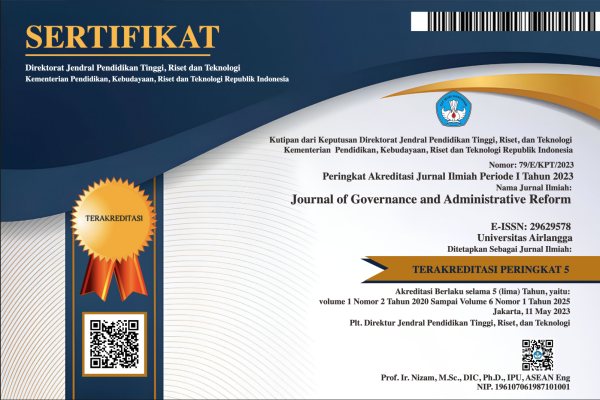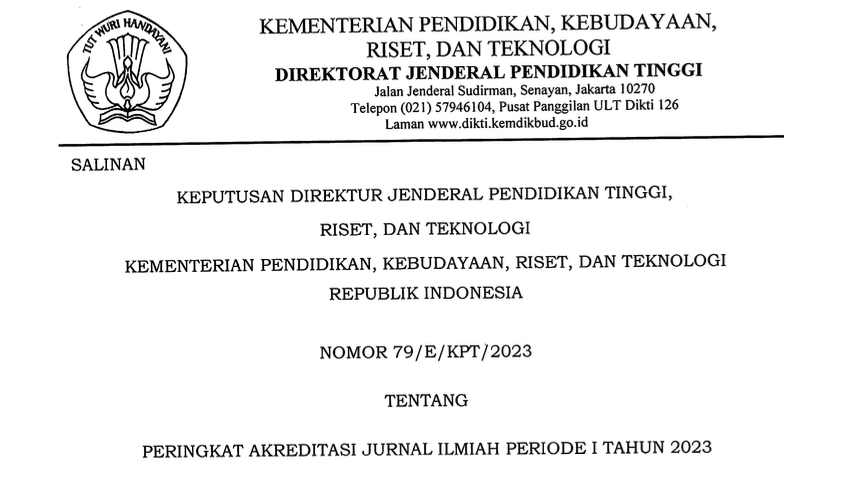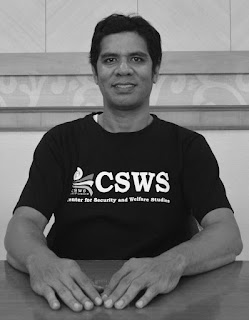Exploring the Challenges and Coping Strategies of the Sangguniang Kabataan in Organizing Youth Advocacies in Local Governance
Downloads
Abstract
This qualitative case study examines the challenges and coping strategies employed by Sangguniang Kabataan (SK) Chairpersons in organizing youth advocacy initiatives within the context of local governance in Pagadian City, Philippines. Grounded in Empowerment Theory, the study emphasizes youth empowerment through active participation, resource access, and autonomy in decision-making. Data were collected via semi-structured interviews, field observations, and document analysis involving eight elected SK Chairpersons. The findings reveal that SK leaders encounter systemic and operational challenges, including low youth participation due to disinterest in formal assemblies and advocacy events, limited financial resources that impede project implementation, and minimal support from barangay councils, which negatively affects coordination and morale. Attendance at assemblies and activities is typically recorded using manual systems, as digital attendance tools are either unavailable or not widely utilized among SK councils in the region. In response to these challenges, SK officials employ various coping strategies, such as forming partnerships with local organizations and NGOs, leveraging social media creatively, incorporating gamified activities, and integrating advocacy initiatives into popular youth events, such as sports tournaments. These strategies demonstrate the adaptability and resilience of young leaders navigating the complexities of local governance. The study offers valuable insights for strengthening policy frameworks and support systems for youth councils, thereby promoting more inclusive and participatory community development.
Keywords: sangguniang kabataan; youth advocacy; local governance; empowerment theory; coping strategies.
Abstrak
Studi kasus kualitatif ini menganalisis tantangan dan strategi penanggulangan yang diterapkan oleh Ketua Sangguniang Kabataan (SK) dalam mengorganisir inisiatif advokasi pemuda dalam konteks pemerintahan lokal di Kota Pagadian, Filipina. Berdasarkan pada Teori Pemberdayaan, penelitian ini menekankan pemberdayaan pemuda melalui partisipasi aktif, akses terhadap sumber daya, dan otonomi dalam pengambilan keputusan. Data dikumpulkan melalui wawancara semi-terstruktur, observasi lapangan, dan analisis dokumen yang melibatkan delapan Ketua SK terpilih. Temuan penelitian menunjukkan bahwa para pemimpin SK menghadapi tantangan sistemik dan operasional, termasuk rendahnya partisipasi pemuda akibat ketidaktertarikan terhadap pertemuan formal dan kegiatan advokasi, keterbatasan sumber daya keuangan yang menghambat pelaksanaan proyek, serta dukungan yang minimal dari dewan barangay yang berdampak negatif terhadap koordinasi dan semangat kerja. Kehadiran dalam pertemuan dan kegiatan umumnya dicatat menggunakan sistem manual, karena alat presensi digital tidak tersedia atau tidak digunakan secara luas di kalangan dewan SK di wilayah tersebut. Sebagai respons terhadap berbagai tantangan ini, pejabat SK menerapkan berbagai strategi penanggulangan, seperti menjalin kemitraan dengan organisasi lokal dan LSM, memanfaatkan media sosial secara kreatif, mengintegrasikan aktivitas berbasis permainan (gamifikasi), dan menggabungkan inisiatif advokasi ke dalam acara pemuda yang populer, seperti turnamen olahraga. Strategi-strategi ini menunjukkan kemampuan beradaptasi dan ketangguhan para pemimpin muda dalam menghadapi kompleksitas pemerintahan lokal. Penelitian ini memberikan wawasan berharga untuk memperkuat kerangka kebijakan dan sistem dukungan bagi dewan pemuda, dengan tujuan mendorong pembangunan komunitas yang lebih inklusif dan partisipatif.
Kata kunci: sangguniang kabataan; advokasi pemuda; pemerintahan lokal; teori pemberdayaan; strategi penanggulangan.
Atanoza, M. (2024). Youth governance and reform: Revisiting the SK structure. Philippine Journal of Youth Development, 9(1), 45-60.
Catapang, J. (2024). Health and youth in community initiatives. Journal of Local Governance, 12(2), 88-97.
Castillo, E., Ramos, F., & Navarro, C. (2022). Enhancing civic engagement: The role of SK in the digital age. Governance Review, 11(3), 102-115.
Elsana, D. (2020). Balancing service and advocacy: A study of youth councils. Journal of Social Dynamics, 5(4), 221-233.
Iii, R., Santos, M., & Uy, J. (2021). Coping mechanisms of youth leaders under political pressure. Leadership Studies Journal, 7(1), 33-51.
Merriam, S. B. (2015). Qualitative research: A guide to design and implementation (3rd ed.). San Francisco: Jossey-Bass.
Palangdao, R. (2023). Barriers to youth engagement in SK initiatives. Philippine Governance Studies, 10(1), 76-91.
Palomares, D., Tamayo, J., & Reyes, G. (2021). Intrinsic and extrinsic motivations of SK officials. Youth Politics Review, 6(2), 59-74.
Rachmad, Y. E. (2022). Empowerment theory: Reframing youth development. Journal of Political Psychology, 8(2), 41-55.
Reguindin, L. (2023). The evolving role of the SK Chairman. Journal of Local Political Studies, 14(2), 130-148.
UNESCO. (2021). Youth engagement in governance. Retrieved from https://www.unesco.org
UNICEF. (2024). Youth in decision-making. Retrieved from https://www.unicef.org
Copyright (c) 2025 Authors

This work is licensed under a Creative Commons Attribution-ShareAlike 4.0 International License.
Jurnal Governance and Administrative Reform by Unair is licensed under a Creative Commons Attribution-ShareAlike 4.0 International License.
1. The journal allows the author to hold the copyright of the article without restrictions.
2. The journal allows the author(s) to retain publishing rights without restrictions
3. The legal formal aspect of journal publication accessibility refers to Creative Commons Attribution Share-Alike (CC BY-SA).






















